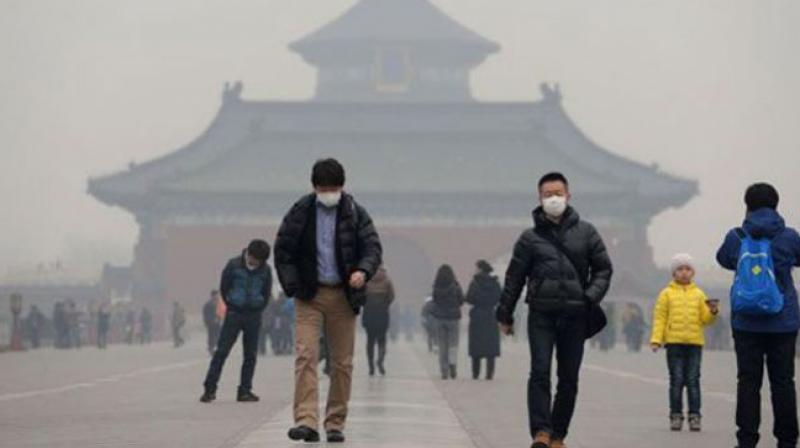China air quality facing unprecedented pressure: Official

Beijing: China's air quality is facing unprecedented pressure as it is discharging greater amounts of almost every kind of pollutant than any other country, a top Chinese environment official has said.
"The huge quantities of emissions in the Beijing-Tianjin- Hebei region have directly led to the rise in average PM 2.5 density, a key indicator of air quality," Wang Jinnan, vice president of the Chinese Academy for Environmental Planning told annual environmental protection summit in Zhaoqing, South China's Guangdong Province.
As a result average visibility has decreased by approximately 50 kms across the nation in the last few decades, Wang was quoted as saying by sate-run Global Times on Tuesday.
China along with US is the top polluter. Both countries have endorsed the Paris Climate deal.
According to a national action plan issued in September 2013, the Beijing-Tianjin-Hebei region should cut its PM 2.5 density by 25 per cent by 2017 from 2012 levels, state-run Xinhua News Agency reported.
To achieve that goal, the authorities will need to invest about 1.75 trillion yuan (USD 2.5 trillion), Wang estimated.
For a huge developing country like China, it is more meaningful to discuss the amount of air pollutants including nitrogen oxide and PM 2.5 in per capita terms, Wang Gengchen, a research fellow at the Institute of Atmospheric Physics of the Chinese Academy of Sciences, told the Times.
The country is relying heavily on coal, which generates most of the pollutants, as its primary source of energy for production, taking up about 70 per cent of the total energy consumption, Wang said.
Lei Wen, deputy chief of the environmental protection division under the Ministry of Industry and Information Technology, told the meeting the industrial pattern of China -high investment, high emissions and high pollution - has not yet fundamentally changed.
The CCID Institute, a Beijing-based think tank affiliated with the Ministry of Industry and Information Technology, pointed out at the summit that China is not paying enough attention to controlling the sources of pollution and promoting cleaner production.
But Chen Jianmin, executive deputy director of the Department of Environmental Science and Engineering at Fudan University, told the Global Times that it is very difficult to replace coal with new energy sources in a short period.
The action plan to replace energy sources requires more consistent and effective government supervision at all levels, Chen said.
Wang urged the government to make sure that the small and medium-sized enterprises use environmental protection equipment on a daily basis.
Major pollutants in China saw a significant decline in the first six months of 2015, statistics released by the Ministry of Environmental Protection disclosed.

